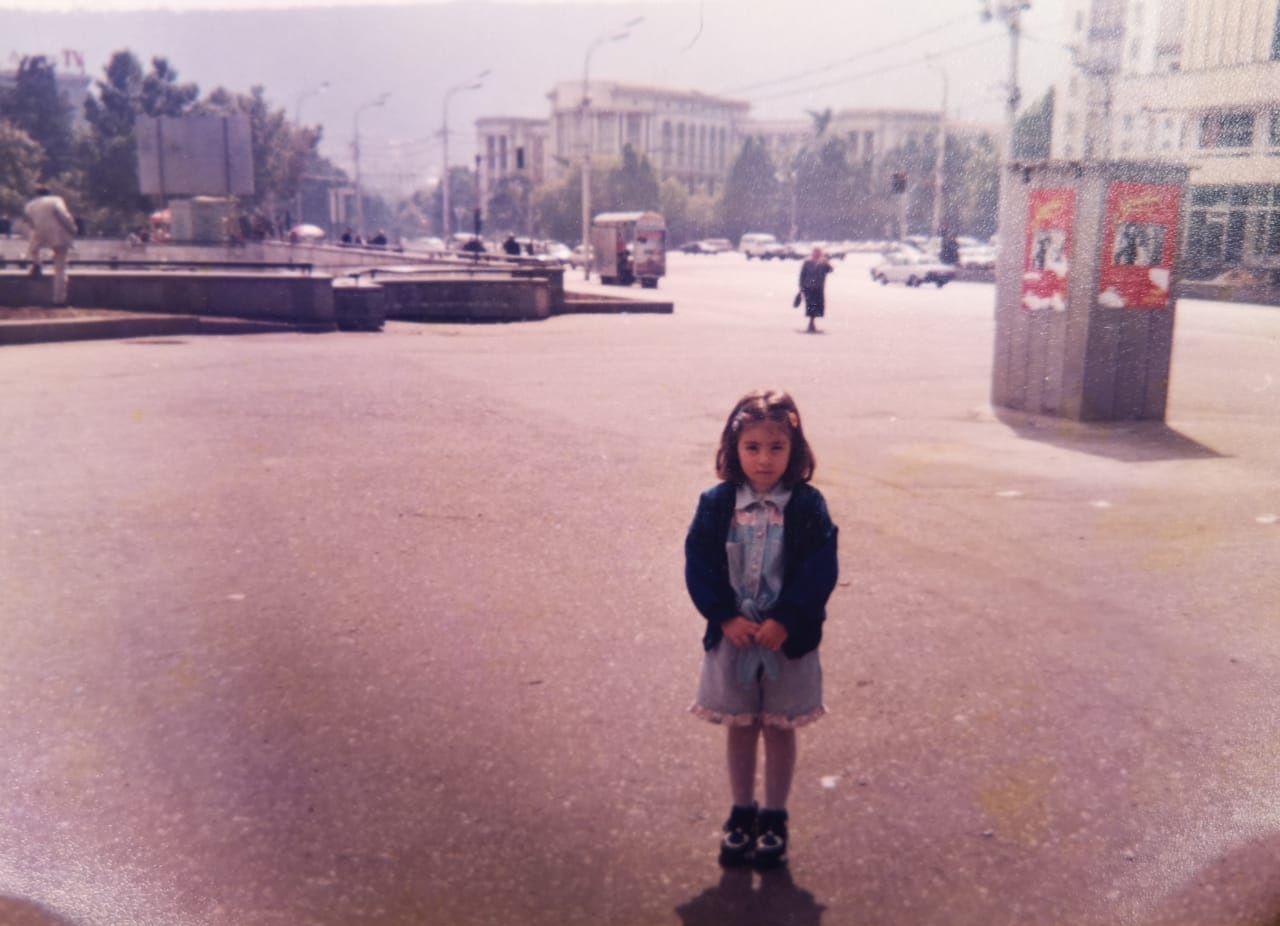Inspired by the Rose Revolution, a Youth Changemaker Opens Doors for Georgia’s Youth

Diana Endeladze was a young girl when the dramatic events of the 2003 Rose Revolution transformed Georgia. Today, as a nonprofit leader, she is helping to connect Georgian youth with education and cultural exchange opportunities abroad. This is the first in a series of profiling members of the European Youth Democracy Network (EDYN), proudly co-sponsored by the International Republican Institute (IRI).
The year is 2002. A young, second-grade girl throws a hunk of wood into her classroom’s open fire in an attempt to stave off the cold. The girl and her friends are shivering in the cold as they try desperately to heat up before the lesson begins. Her name is Diana Endeladze and this is how she begins her school day in the outskirts of Tbilisi, Georgia. Unlike her counterparts in countries such as the United States, the United Kingdom or Japan, Diana would spend most of her days like this, studying by candlelight, deprived of heat and electricity due to black outs that lasted days and stuck with a curriculum that punished individuality and critical thinking. This is because Diana was schooled in a post-Soviet nation, where the tentacles of socialism and corruption had yet to recede and loosen their grip on the country. What Diana didn’t know was that in just a year, her life would change.
“Things were very desperate. We grew up without electricity or heat, and we struggled to overcome challenges from the Soviet Union to just survive. We didn’t even have bathrooms,” Diana said. “It surprises me when I talk to people from other countries about their lives and schools,” she added.
Enter the Revolution
In November 2003, following parliamentary elections that failed to meet international standards, tens of thousands of Georgians flocked to Tbilisi, calling for free and fair elections, an end to corruption and improvement in basic living conditions. The protests became known as the Rose Revolution. Through the will of the people, the old socialist vanguard was defeated, and the lives of Georgians began to improve as the country pursued its Euro-Atlantic path. “During the Rose Revolution, many things changed for the better. I remember that gradually I had more light at home. I was not studying by candlelight anymore.”
The Rose Revolution drastically improved the lives of all Georgians, Diana included. She was able to study unimpeded and was accepted into the European Union’s Eurasmus program to study abroad for a year in Bulgaria at Sofia University.
More than 15 years after the Rose Revolution, Georgia still faces many challenges overcoming its socialist past and the failed policies of the early post-Soviet period. “Georgia is a young democracy, and we need to learn the importance of youth engagement. Youth participation in politics is very low. Youth unemployment is at 27 percent. This is a result of the poor education system we had left over from the Soviet Union and, in some ways [we] still have it.”
Diana knows that for Georgia to prosper, this must change. And just as her parents taught her, “if you want something to change, you should act on it.” That’s exactly what she’s done.
Inspired by the positive change that social activism brought following the Rose Revolution, Diana became committed to improving the lives of youth in her country. Today, she is the deputy director at the Civil Development and Research Institute, a Tbilisi-based nonprofit that provides underprivileged youth with opportunities to recieve a valuable education and cultural exchange experiences abroad. Diana hopes to motivate Georgian youth to become more involved in their communities at home by exposing them to democratically active youth and organizations worldwide: organizations like the International Republican Institute (IRI) and their programs such as the European Youth Democracy Network (EDYN).
The purpose of EDYN is to empower politically and civically engaged youth in countries where democracy is more fragile by giving them the expertise, tools and experience needed to combat the problems facing the democratic process at home. As Diana puts it “EDYN is providing young people the platform to speak and act to change their communities for the better.”
“It is very important for the youth to take part in the policy changing processes especially in the matters of education to avoid backtracking and having more responsive policies that would truly guarantee progress in the country. But most youths chose not to do this because of our history. They choose not to participate at all, and this is a very big issue.” The road to empowering youth in Georgia is long and hard, but it’s a road Diana is happy to walk because as she so eloquently says, “The lack of youth participation is very serious because without the youth, there is no such thing as the next generation.”
Top